Your Guide to Going Solar:
How It All Works
Going solar is one of the smartest ways to take control of your energy bills.
By generating your own clean electricity, you can drastically reduce what you owe to the utility company — or even eliminate it.
The best part? Many programs now make it possible to go solar with zero money out of pocket. That means you can start saving from day one, all while increasing your home’s value.
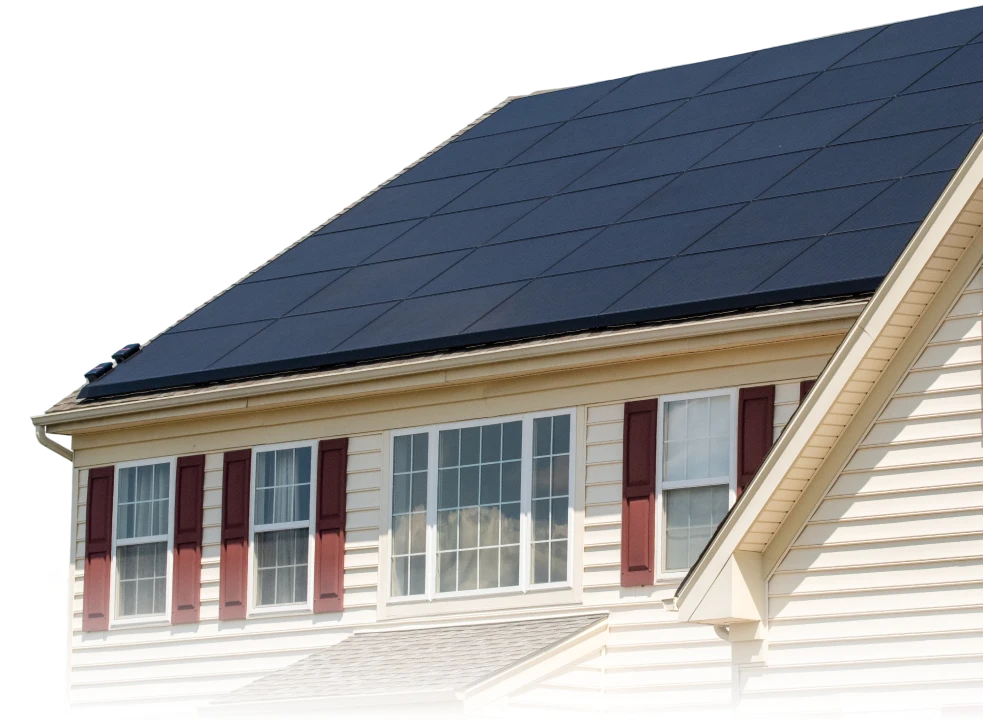
Old Electric Bill
$234
Per Month
New Electric Bill
$17
Per Month
See How Solar Powers Your Home
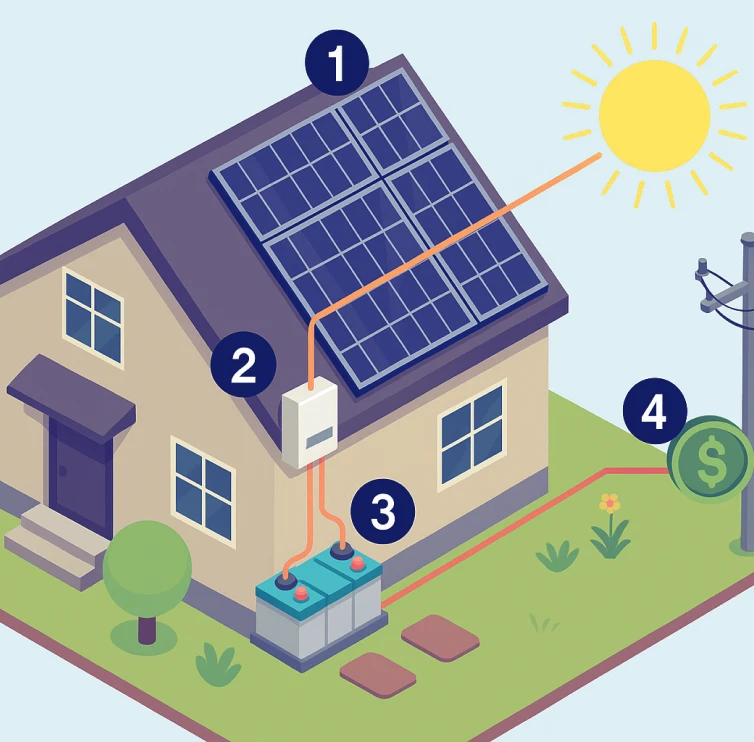
Solar Panels Capture Sunlight
Inverter Converts Power
Power Your Home (and the Grid)
Earn Credits Through Net Metering
Understanding Net Metering
Net metering is the key to making solar power work effectively for homeowners.
Although programs vary depending on your state and utility provider, the basic concept is simple: your solar panels generate energy throughout the day, often producing more electricity than your home needs. This excess energy flows back into the grid, earning you energy credits—essentially spinning your electricity meter backward.
These credits accumulate over time, much like rollover minutes on a cell phone plan. Then, when your solar system isn’t producing electricity—such as at night—your home draws power from the grid, causing the meter to spin forward again.
However, instead of receiving a bill for this electricity, you use the credits you’ve previously earned to offset the cost.
This process, known as net metering, is what makes solar energy truly beneficial for homeowners. The goal is to install a solar panel system capable of generating enough electricity to fully cover your home’s energy needs. Once achieved, your accumulated credits can dramatically reduce, or even completely eliminate, your monthly electricity bill.
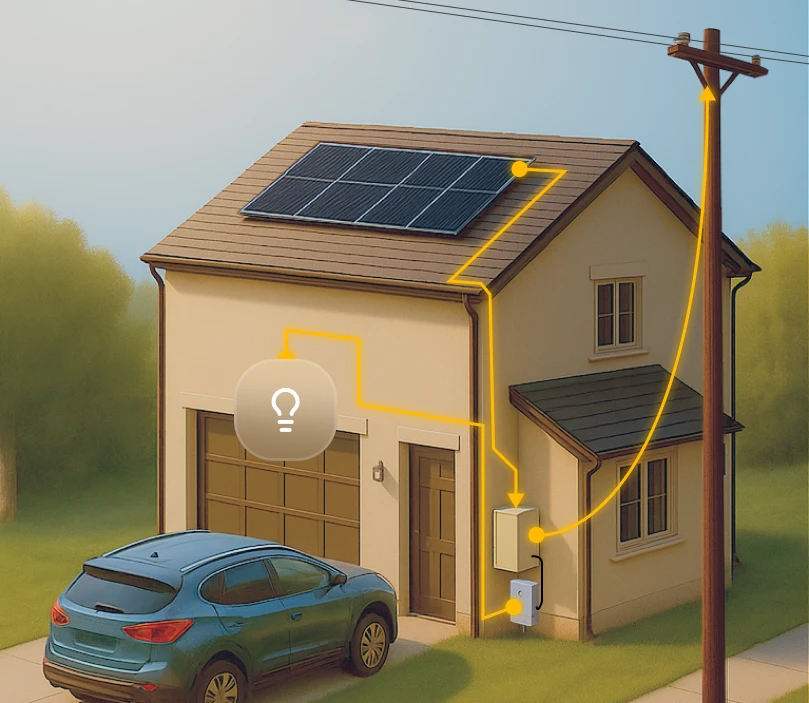
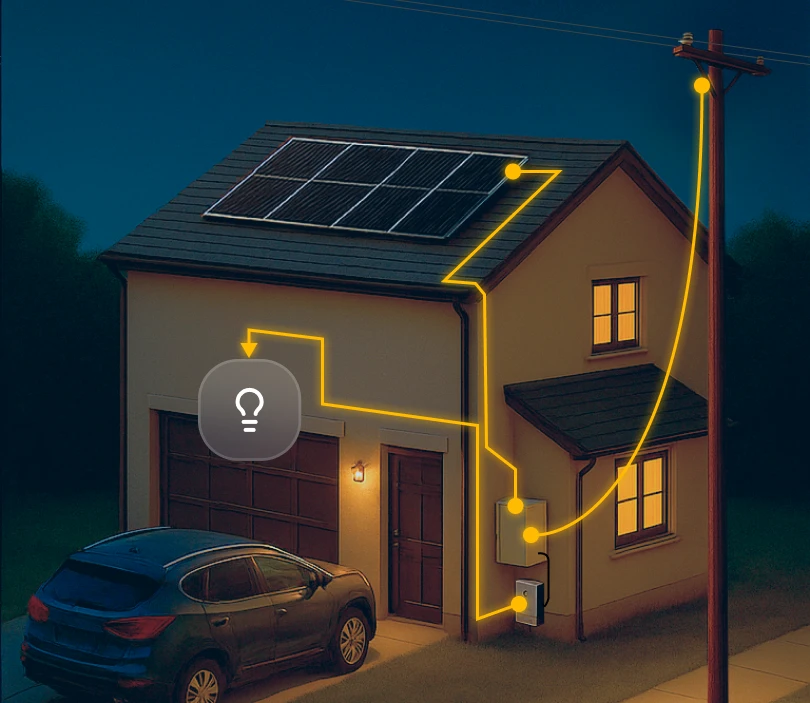
Transitioning your home is simple.
Qualify Your Home

Site Survey & Permitting
From there, we take care of all the heavy lifting—including submitting plans, obtaining local permits, and coordinating approvals with your utility provider—ensuring everything is ready for installation without hassle.
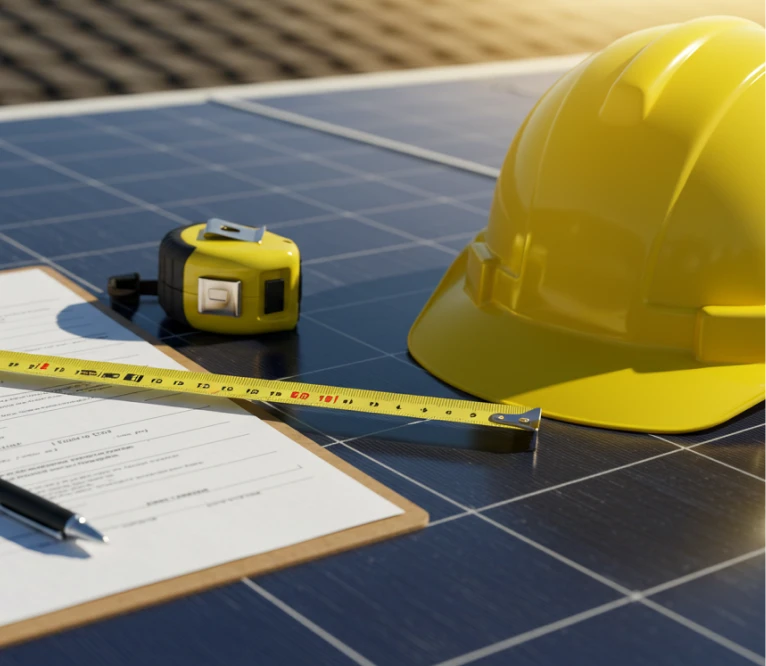
Solar Installation
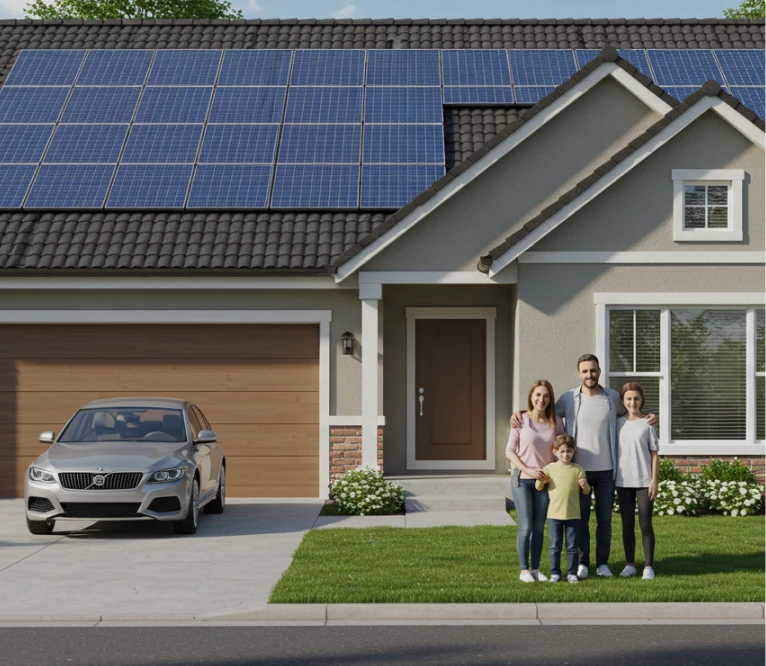
See What Solar Could Save You—With Zero Upfront Cost
And for qualified homes, there’s no out-of-pocket cost to make the switch.
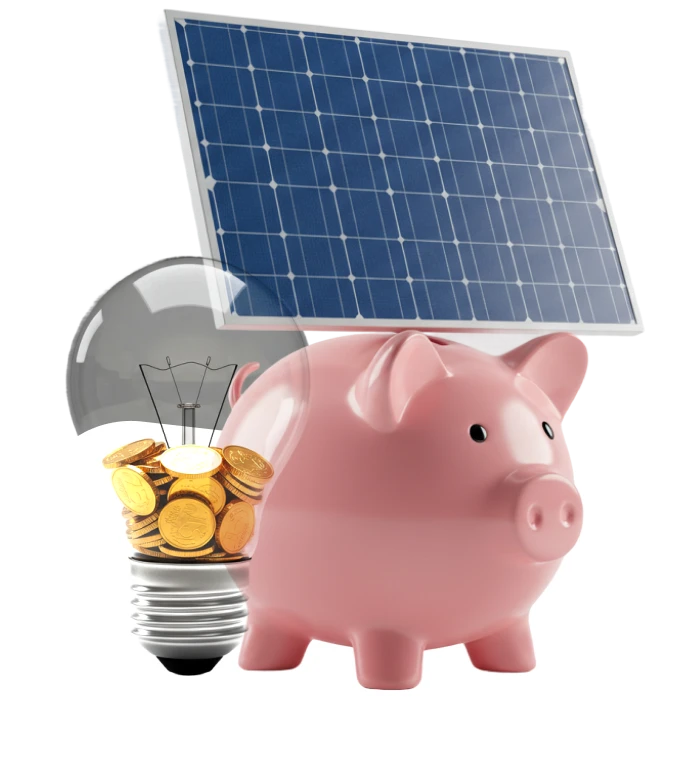
Local, Reliable, Ready to Help
How Does Solar Work
Solar panels capture sunlight and turn it into electricity. The panels contain special cells that absorb energy from the sun, creating direct current (DC) power. An inverter then converts this into alternating current (AC) power, which is what homes and businesses use. Any extra energy can be stored in batteries or sent back to the grid.












